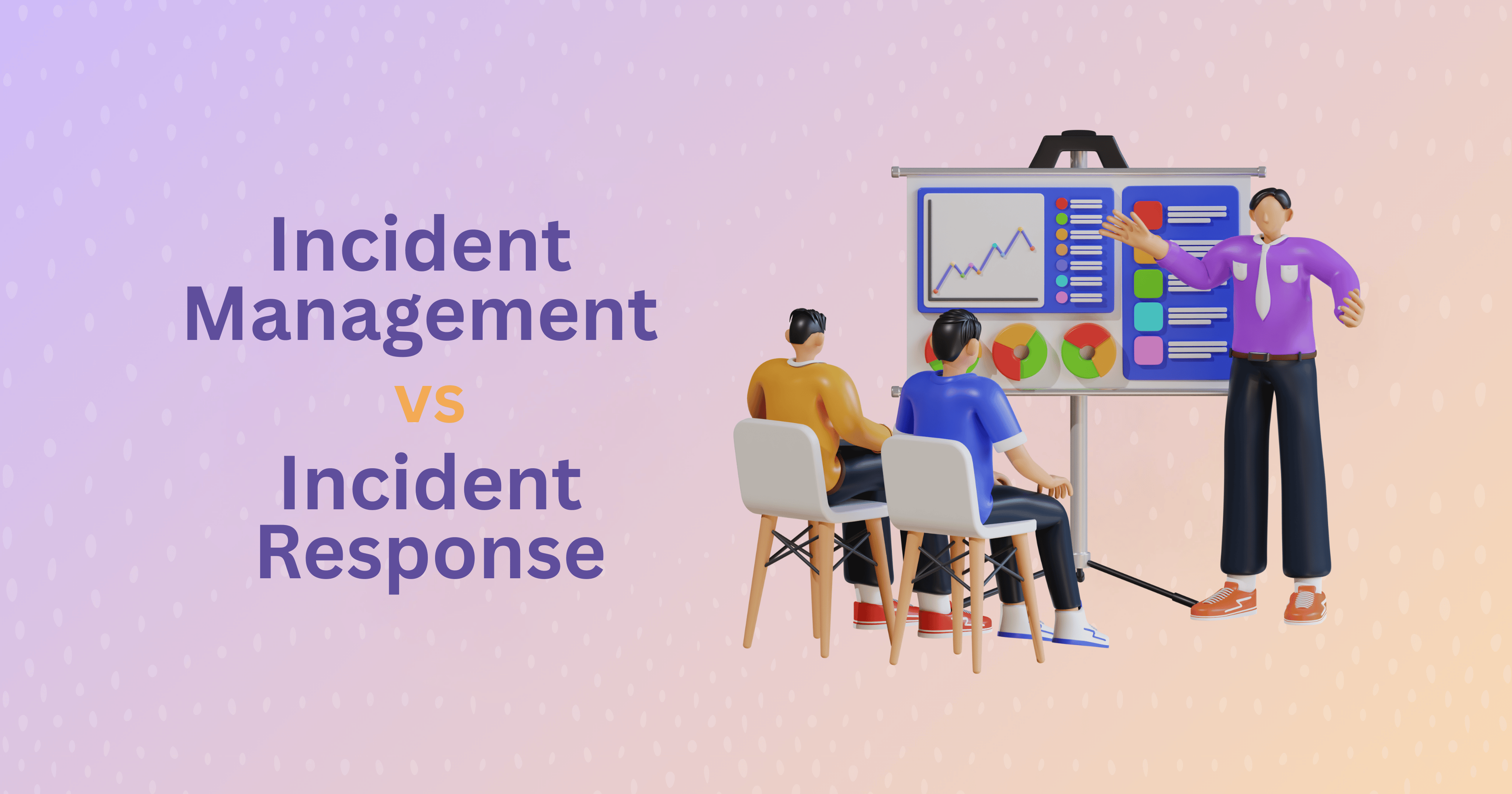

SRECon EMEA 2025: Top Talks + Events
5 AI and reliability talks you can’t miss, plus the perfect after-conference events to wrap up Days 1 and 2 in Dublin

September 17, 2025
7 mins
Oncall That Cuts MTTR in Half.



When systems fail at 3 AM, every second counts. Teams face the harsh reality of alerts firing, customers complaining, and revenue bleeding. The difference between organizations that recover quickly and those experiencing prolonged outages often comes down to how effectively they manage incident response through their oncall software.
MTTR remains the most popular performance indicator, used by 86% of respondents, underscoring its critical role in measuring incident management efficiency. This comprehensive guide explores the top incident management tools that can dramatically reduce your Mean Time to Recovery (MTTR), focusing on enterprise solutions that scale with your team's needs.
Oncall software automates critical incident workflows, ensuring the right personnel respond to issues immediately. MTTR (mean time to recovery or mean time to restore) is the average time it takes to recover from a product or system failure. This includes the full time of the outage—from the time the system or product fails to the time that it becomes fully operational again.
When unexpected issues arise, effective oncall software makes the difference in minimizing downtime and maintaining service reliability. The platform ensures someone's always available to respond to incidents, regardless of time of day.
Enterprise incident management solutions must handle complex alert routing, intelligent escalation, and real-time collaboration to prevent incidents from growing in severity and impact.
When evaluating enterprise incident management solutions, teams need these essential capabilities:
Modern incident management requires:
Rootly leads the market for engineering teams prioritizing automation and streamlined workflows. Rootly AI SRE unlocks 91% faster incident resolution, making it the standout choice for teams focused on reducing MTTR.
Key differentiators:
One of the biggest benefits has been a significant improvement in our incident metrics. Rootly has directly contributed to reducing our Mean Time to Detect (MTTD), Mean Time to Mitigate (MTTM), and Mean Time to Resolve (MTTR) stats.
Rootly transforms chaotic incident response into structured, repeatable processes while maintaining detailed audit trails for post-incident reviews.
PagerDuty remains an industry standard for IT and DevOps teams, offering comprehensive incident management capabilities with extensive enterprise deployments.
Core strengths:
Grafana OnCall delivers powerful oncall management for teams already invested in the Grafana ecosystem.
Notable features:
Incident.io transforms Slack into a comprehensive command center for incident management, enabling teams to manage the entire incident lifecycle without leaving their communication platform.
Key capabilities:
FireHydrant provides end-to-end incident management as part of a broader reliability platform.
Platform features:
When teams evaluate Rootly vs PagerDuty, they're choosing between modern innovation and established market presence.
The critical difference: Rootly focuses on making incident response feel integrated into existing workflows, while PagerDuty offers comprehensive breadth that comes with market leadership.
When choosing the best oncall software for teams, evaluate these essential factors:
Incident response: how quickly the company notices an incident, understands it, and fixes it. A better incident management strategy can facilitate faster response times and let customers know they're not forgotten—going a long way towards customer satisfaction.
Teams need platforms that reduce cognitive load during high-stress incidents while providing clear guidance for effective response.
Regardless of platform choice, these practices drive significant MTTR improvements:
Focus on:
Proactive responders increased to 68% in 2024, a 12% rise from the previous year, reflecting a shift towards preventing incidents before they occur, showing the importance of:
The incident management landscape continues evolving with emerging trends:
AI usage for incident response jumped by 21%, with 63% of organizations currently using AI and 34% planning to adopt it. This highlights AI's growing importance in streamlining and improving incident handling.
Teams increasingly expect:
Modern oncall software must support:
Selecting the right oncall software isn't just about managing alerts—it's about building organizational resilience that responds quickly to any challenge.
Rootly stands out as the platform built for modern engineering teams who want incident management that feels natural, not burdensome. With automated workflows, intelligent routing, and deep integration capabilities, Rootly helps teams reduce MTTR while maintaining the work-life balance that keeps engineers productive and engaged.
The platform's AI-powered features and comprehensive integration library enable teams to build incident response processes that scale with organizational growth while maintaining consistency across all incidents.
Ready to experience how much faster your team could respond to incidents? Start your free trial with Rootly and discover incident management designed for the way modern teams actually work.
.png)
.png)
Get more features at half the cost of legacy tools.



.png)
.png)
Get more features at half the cost of legacy tools.

.jpg)

.png)
.png)
Get more features at half the cost of legacy tools.

.png)
.png)
Get more features at half the cost of legacy tools.

.jpg)

.png)

.png)
Get more features at half the cost of legacy tools.